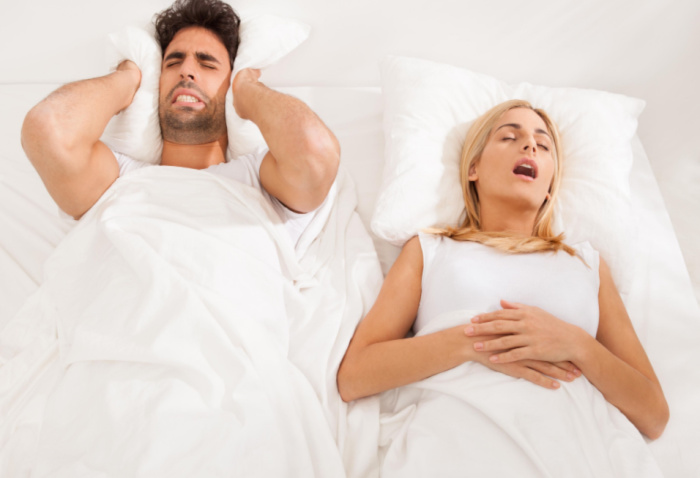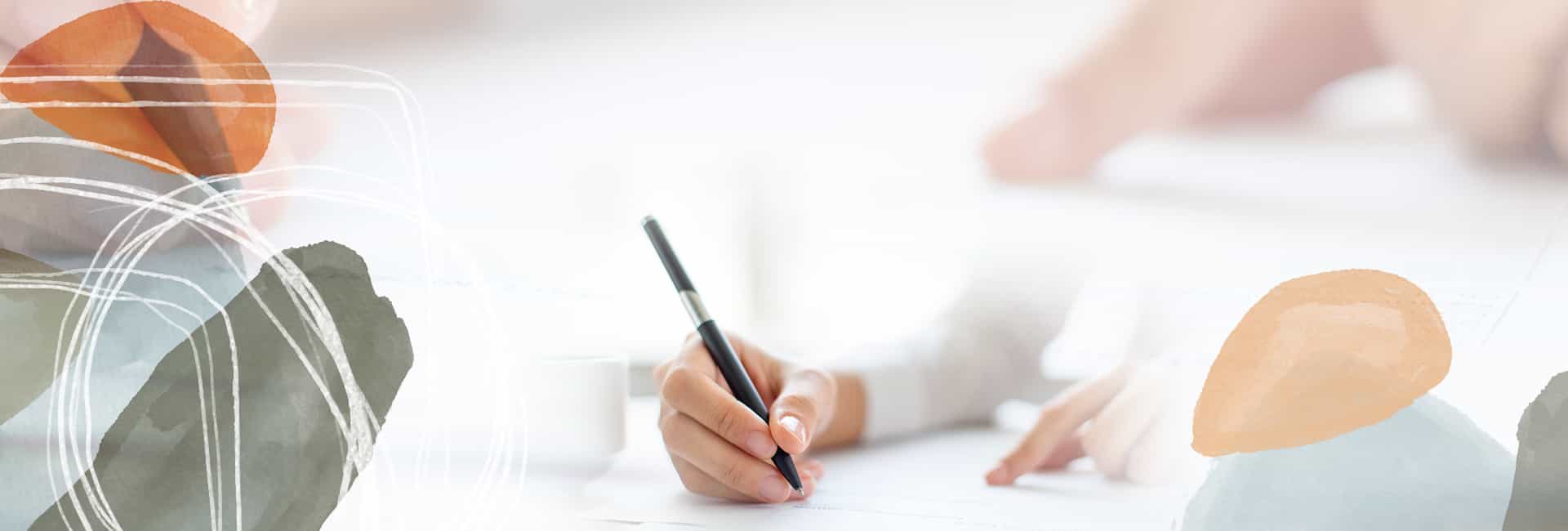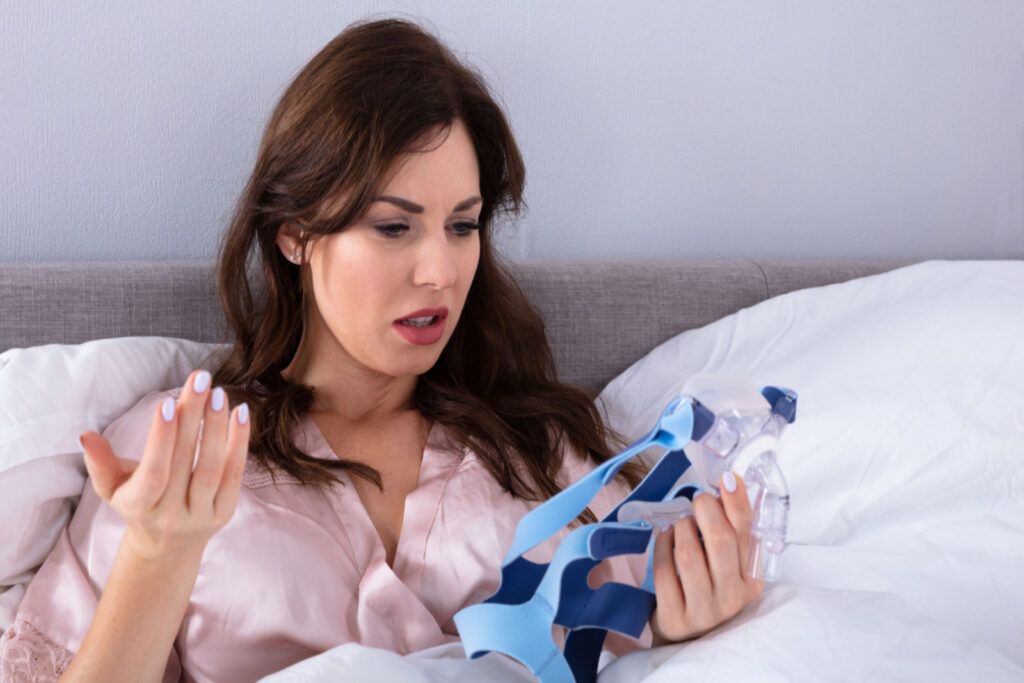If you have sleep apnea, you may be used to snoring, but a CPAP can help improve your sleep. Many people use CPAP machines to manage this condition, but why can someone continue to snore, even when using their machine?
Continue reading to learn more about sleep apnea, including why some people continue to snore when using their CPAP.
What Is Sleep Apnea?
Sleep apnea is a disorder where your breathing repeatedly stops as you sleep. These apneas prevent you from getting rest because you briefly wake up multiple times throughout the night. Over 850,000 Canadians have this condition, waking up tired.
There are 3 types of sleep apnea you can develop, with each causing sleeping problems for a different reason:
- Obstructive sleep apnea: You have obstructive sleep apnea when the soft tissue in the back of your throat collapses & blocks your airways.
- Central sleep apnea: Central sleep apnea occurs when your brain doesn’t send proper signals to the muscles controlling your breathing.
- Complex sleep apnea syndrome: Complex sleep apnea syndrome is a mixture of obstructive & central sleep apnea.
Anyone at any age can develop sleep apnea, leading to several irritating symptoms.
Sleep Apnea Symptoms
It’s common for many people with sleep apnea not to know they have this condition. Many sleep apnea symptoms occur while you’re sleeping, so family members are typically the first to notice these problems.
It’s recommended you see your doctor for a sleep apnea diagnosis if you experience any of the following symptoms:
- Sleepiness during the day
- Loud snoring accompanying silent pauses in breathing
- Gasps or choking during sleep
- Headaches after waking up
- Irritability or other mood changes
- Poor concentration
- Struggles with staying awake during the day
While snoring at night isn’t a guarantee that you have sleep apnea, many patients experience this symptom. It’s important to visit a professional for a diagnosis because of the effect sleep apnea can have on your quality of life and overall health.
Besides feeling tired and irritated during the day, sleep apnea can lead to health complications like high blood pressure, heart problems, type 2 diabetes, and liver problems. However, you can lower your risk of these problems when you visit a sleep expert and receive treatment for this condition.

What Causes Your Snoring?
The cause of your snoring depends on the type of sleep apnea you develop.
If you have central sleep apnea, you develop apneas because your brain doesn’t send signals to your breathing muscles during sleep. You wake up briefly because there’s no communication between the brain and muscles, leading to apneas.
Obstructive sleep apnea occurs when your airway narrows or closes because something blocks it. This condition typically occurs because the muscles in your throat relax, including your soft palate, uvula, tonsils, and tongue. The airway closes as you breathe, making it difficult to get enough air—forcing your brain to wake you up and fix your airway.
You probably don’t remember waking up when you have obstructive sleep apnea, but many people do this between 5 to 30 times per hour. Snoring, choking, and gasping for air are common signs you’re experiencing sleep apnea.
Treating Sleep Apnea
Sleep apnea typically requires long-term management to help you sleep better. One of the most common ways to treat this condition is with a continuous positive airway pressure (CPAP) machine.
A CPAP sends a specific amount of pressurized air down your throat to force the airway to stay open, helping prevent you from waking up at night. You wear a facemask that connects to your CPAP machine via a connective hose.
Why Are You Still Snoring When Wearing Your CPAP?
Some people may continue to snore when using their CPAP. Their partner or a family member may mention they hear snoring or other noises at night. There could be several reasons for snoring when using a CPAP machine.
One possibility is that your mask is leaking or not fitting as it should. A leak in your mask can stop your machine from keeping your airway open, leading to snoring and other sleep apnea symptoms.
Another possible problem is that your machine doesn’t have the correct pressure. Your CPAP may not be forcing enough air down your throat to keep it open.
If you’re still snoring with your CPAP, visiting a sleep expert can help determine if you need changes to your treatment plan.
Alternative Sleep Apnea Treatments
Besides adjusting your mask or CPAP pressure setting, your doctor may recommend alternative or supplementary sleep apnea treatments. These management strategies can replace your CPAP or support your current sleep apnea treatments.
Oral Appliances
Oral appliances are a potential alternative to your CPAP. They look like a mouthguard for sports and help open your airway to prevent it from collapsing. An oral appliance prevents the tongue and other soft tissue from obstructing your breathing, helping you sleep better.
Solea Sleep
While Solea Sleep isn’t an alternative to your CPAP, it can help treat snoring and open the airway more to reduce the pressure your CPAP machine requires. This laser uses a specific wavelength to tighten the collagen fibres in your soft palate tissue, opening your airway and reducing vibrations from snoring.
Enjoy a Good Night’s Sleep
While sleep apnea can affect your quality of life due to lack of rest, several treatments are available to help. However, continued snoring when using your CPAP machine is concerning.
You may have a problem with your machine or mask, so speaking with your doctor is recommended. They can make adjustments to your CPAP or recommend additional treatment options. Contact your doctor if you’re still snoring while wearing your CPAP.




